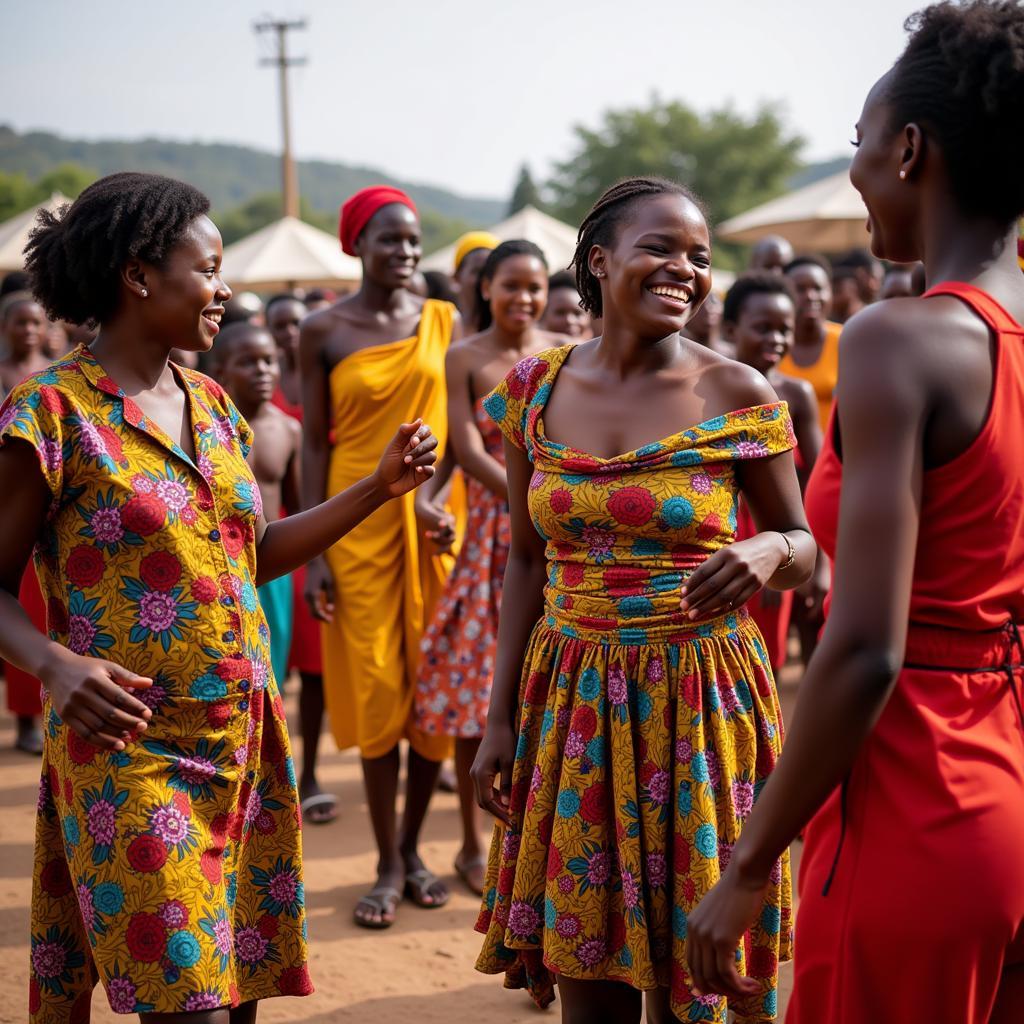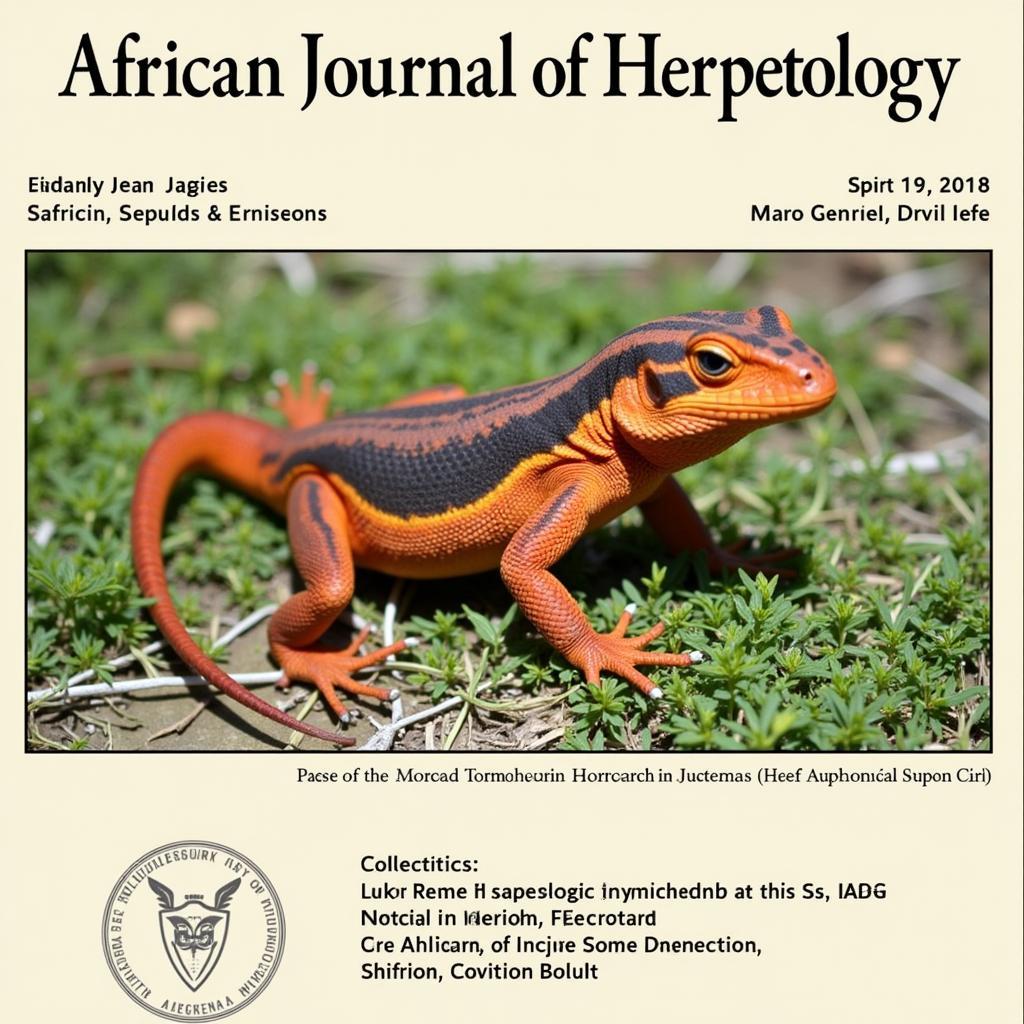Welcoming a New Life: Understanding African Baby Newborn Traditions
The arrival of a newborn baby is a momentous occasion in any culture, often marked by joy, celebration, and time-honored traditions. In the diverse continent of Africa, welcoming a new life into the world is met with a rich tapestry of customs and rituals, each reflecting the unique beliefs and values of different communities. Let’s delve into the world of African Baby Newborn traditions and discover the beauty and significance they hold.
The Significance of Names in African Cultures
 African Baby Naming Ceremony
African Baby Naming Ceremony
In many African cultures, a name is more than just an identifier – it carries deep meaning, often reflecting the circumstances surrounding the birth, aspirations for the child’s future, or honoring ancestors. The process of choosing a name is often a communal affair, involving elders and family members who offer suggestions and blessings. For instance, the name a child born during a particular season or event might reflect that occurrence.
[african baby girl names starting with n](https://omenkamag.com/african-baby-girl-names-starting with-n/) often have beautiful meanings and cultural significance tied to them. Similarly, names that mean “gift from God” are common across various African cultures, emphasizing the belief that children are a blessing. This tradition highlights the importance of community and lineage in welcoming a new life.
Traditional Birthing Practices and Postnatal Care
While modern healthcare practices are becoming increasingly common, traditional birthing customs remain prevalent in many parts of Africa. Midwives, often respected elders within the community, play a crucial role in guiding mothers through labor and delivery. These experienced women possess a wealth of knowledge passed down through generations, utilizing herbal remedies and traditional techniques to ensure a safe and healthy birth.
Postnatal care in traditional African settings focuses on both mother and child. Special diets rich in nutrients are often prescribed for new mothers to aid in recovery and support breastfeeding. Additionally, specific herbs and natural remedies are used to promote healing and overall well-being.
The Role of Community in Raising a Child
The African proverb, “It takes a village to raise a child,” resonates deeply in the context of newborn traditions. In many African cultures, the responsibility of caring for a newborn extends beyond the immediate family to include extended relatives, neighbors, and the wider community. This communal approach to child-rearing fosters a strong sense of belonging, support, and shared responsibility.
Celebrating New Life: Rituals and Ceremonies
The arrival of an African baby newborn is often marked by various rituals and ceremonies that serve to welcome the child into the family and community. These celebrations can vary significantly across different cultures but often include:
- Naming ceremonies: As previously mentioned, naming ceremonies hold great significance. They often involve feasts, music, dancing, and the formal announcement of the child’s chosen name.
- Protective rituals: In some cultures, rituals are performed to protect the newborn from harm or evil spirits. These may involve the use of amulets, herbs, or specific prayers.
- Presentation ceremonies: Some communities hold ceremonies where the baby is formally presented to elders, relatives, and the community, signifying their acceptance and integration.
Embracing Modernity While Preserving Traditions
As Africa continues to evolve, there’s a delicate balance between embracing modernity and preserving time-honored traditions. While access to modern healthcare is improving, many communities still hold onto their cultural practices surrounding childbirth and newborn care. This blend of old and new reflects the dynamic nature of African cultures as they adapt to changing times while holding onto their heritage.
FAQs: Common Questions About African Baby Newborn Traditions
1. Are there specific foods given to new mothers in African cultures?
Yes, many African cultures have specific foods believed to aid in postpartum recovery and boost milk production. These often include nutrient-rich ingredients like leafy green vegetables, beans, and certain types of porridge.
2. What is the significance of using herbs in traditional African baby care?
Herbs play a vital role in traditional African medicine and are often used for their healing and therapeutic properties. In baby care, specific herbs might be used to treat common ailments, soothe skin irritations, or promote overall well-being.
african dress for baby boy is another way that tradition is kept alive. The vibrant colors and patterns of traditional clothing hold cultural significance and are often incorporated into special occasions and celebrations.
3. Are fathers actively involved in childcare in African cultures?
While traditional roles might vary, fathers are increasingly involved in childcare in many African societies. They contribute to the well-being of their children through providing for the family, offering emotional support, and participating in their upbringing.
Exploring Further: More Insights into African Cultures
For more fascinating insights into the diverse cultures of Africa, we invite you to explore our other articles:
- african giraffe baby: Discover the fascinating world of giraffe calves and their early life in the African savanna.
- african elephant baby elephant baby: Learn about the adorable and intelligent elephant calves, their family bonds, and the challenges they face.
Need Assistance? We’re Here to Help!
For any questions or assistance, please don’t hesitate to contact us. Our dedicated customer support team is available 24/7 to assist you.
- Phone Number: +255768904061
- Email: kaka.mag@gmail.com
- Address: Mbarali DC Mawindi, Kangaga, Tanzania
We are committed to providing you with the best possible support and guidance.

